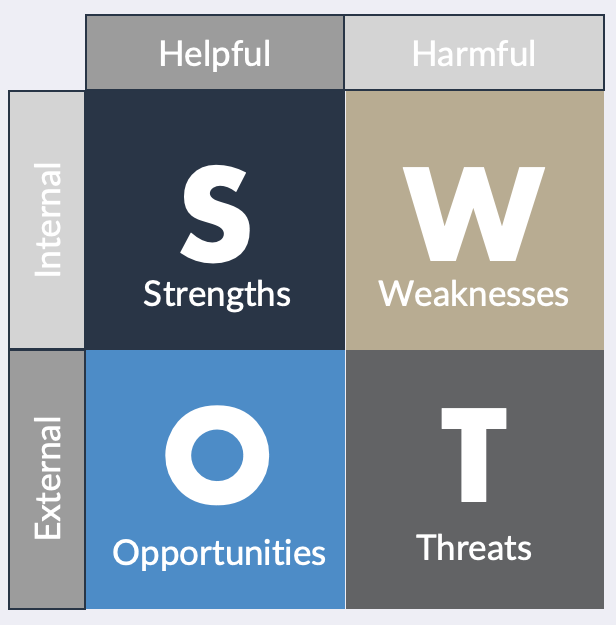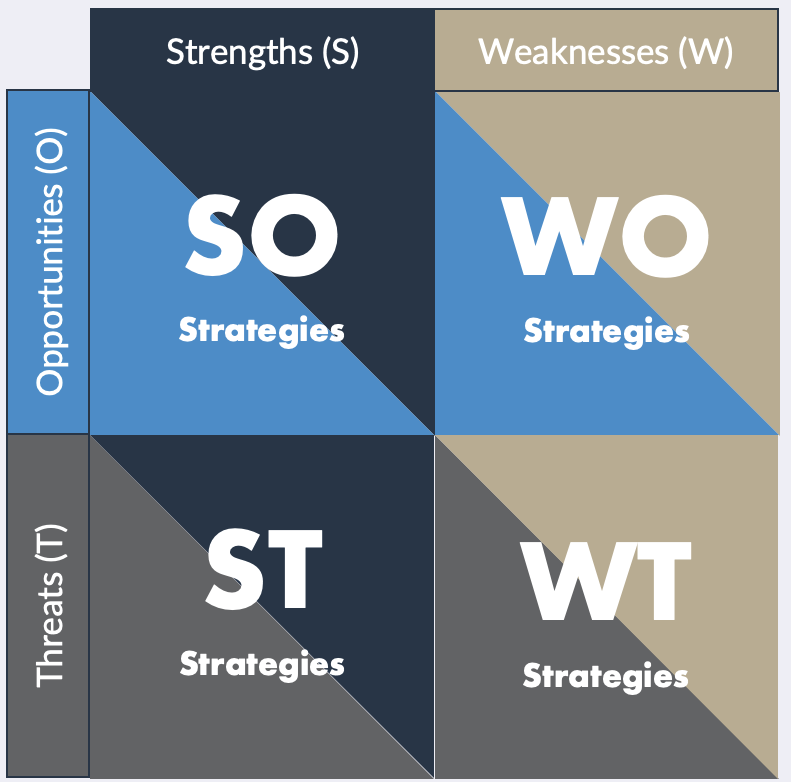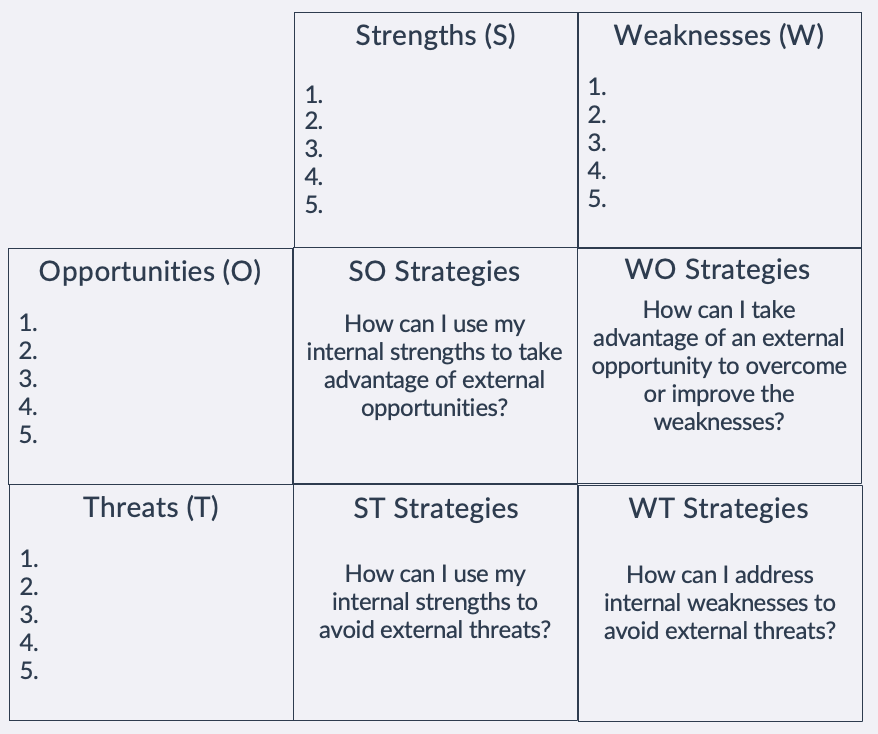Turning Insights Into Action: How to Use a TOWS Analysis for Strategic Advantage
Organizations today face rapidly evolving markets, emerging technologies, and unpredictable economic conditions. To navigate these complexities, leaders must not only understand their organization’s position but also know how to act on that understanding.
SWOT Analysis vs TOWS Analysis

Most strategy professionals are familiar with SWOT analysis, a framework used to assess an organization’s Strengths, Weaknesses, Opportunities, and Threats. While SWOT is valuable for diagnosis, it stops short of prescribing what to do with those insights. That’s where the TOWS Matrix comes in.
The TOWS Matrix is a strategic tool that builds upon the insights of SWOT analysis. It helps leaders translate analysis into actionable strategies by examining how internal and external factors interact.
While SWOT identifies what is happening, TOWS helps determine how to respond. By pairing internal strengths and weaknesses with external opportunities and threats, organizations can craft specific strategies that guide decision-making and resource allocation.
TOWS Strategies
Once an organization has identified its key strengths, weaknesses, opportunities, and threats, the TOWS Matrix uses these insights to generate four types of strategies:
- SO (Strengths–Opportunities): Strategies that use internal strengths to take advantage of external opportunities.
- ST (Strengths–Threats): Strategies that use internal strengths to mitigate or avoid external threats.
- WO (Weaknesses–Opportunities): Strategies that overcome internal weaknesses by taking advantage of external opportunities.
- WT (Weaknesses–Threats): Strategies that minimize internal weaknesses and defend against external risks.

This structured approach helps organizations move from awareness to execution — ensuring that insight leads to informed action.
Creating a TOWS Matrix
The TOWS Matrix helps organizations explore how external opportunities and threats can be matched with internal strengths and weaknesses to generate four sets of possible strategies. It’s an excellent method for structured brainstorming and strategic planning.
Here’s how to build a TOWS Matrix in practice:
- Complete Your SWOT Analysis: Beforecreating a TOWS Matrix, ensure you’ve completed a thorough SWOT analysis. Identify your organization’s most relevant strengths, weaknesses, opportunities, and threats.
- List Internal Factors: Draw from yourSWOT analysis to identify the organization’s key strengths and weaknesses across areas such as operations, talent, technology, and financial performance.
- List External Factors: Use the SWOT findings to outline the most relevant opportunities and threats from the external environment — including market trends, competition, regulation, and global forces.
- Cross-Match Factors: Pair internal and external factors to explore relationships. For example:
- How can a strength be leveraged to seize an opportunity (SO)?
- How can a weakness be reduced to capture an opportunity (WO)?
- How can a strength help minimize a threat (ST)?
- How can a weakness be mitigated to avoid a threat (WT)?
- Evaluate and Prioritize Strategies: Once all four quadrants are filled, you’ll have a comprehensive list of potential strategies. Evaluate each one for feasibility, impact, and alignment with organizational goals, then prioritize the most promising options.

Conclusion: From Understanding to Action
In an environment where change is constant, organizations must evolve from understanding their circumstances to acting strategically within them. The TOWS Matrix transforms a standard SWOT analysis into a dynamic roadmap for growth, resilience, and long-term success.
Strategic insight has little value without action — and the TOWS framework ensures that awareness translates into meaningful progress.
Sign UP to receive related Insights
Related Case STudies
View case studiesSchedule Your Session Today
Enter your information below and our team will contact you.











